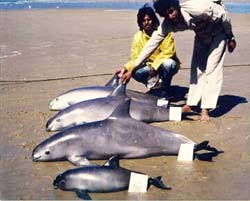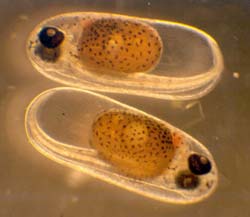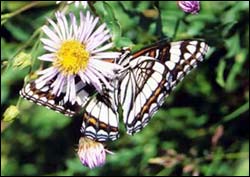This complex theme deals primarily with interactions between organisms and the environmental factors that impact them, but to a greater extent between individual inanimate environmental factors.
innovations-report offers informative reports and articles on topics such as climate protection, landscape conservation, ecological systems, wildlife and nature parks and ecosystem efficiency and balance.

Engineers at Cardiff University, UK, are using the latest technology to update a time-honoured practice – and turn a serious environmental problem into a valuable resource.
Modern industrial societies generate vast quantities of waste – the UK alone produces more than a million tonnes every day. A large proportion of it has traditionally been put into “landfill” – literally dumped into large holes in the land, but space is running out and the damage to the environment from landfill sites is

Defying ocean’s end offers global perspective on eve of pew report
For the first time ever, the world’s largest environmental organizations, working with scientists, the business community and international governments, met specifically to develop a comprehensive and achievable agenda to reverse the decline in health of the world’s ocean.
The five-day Defying Ocean’s End (DOE) conference marked the launch of a new, science-based international effort to restore and maintain

Fishy noises could be the answer for improved reef fisheries management according to an international team of researchers.
Some juvenile coral reef fish are attracted by sounds they would have heard while they were in the egg. By using these sounds, the fish can be led to artificial reefs where they will start new colonies. It may be possible in the future to lead young fish into overfished areas, and super-stock Marine Protected Areas.
Marine biologist Stephen Simpson of the Unive

The EU examines ways to reverse damage in the Mediterranean and Black Seas
Fifty years of intense development and exploitation have resulted in significant change to the fragile natural resources of the Mediterranean and Black Seas, and their coastal areas. Agreeing ways to prevent further environmental degradation will be the focus of the “International Conference on the Sustainable Development of the Mediterranean and Black Sea Environment” (IASON), to be held from 28 May to 1June i

One barrier to protecting biodiversity is that there are no good ways of figuring out how many species there are in large areas. Now we may finally be able to find out: a new method accurately predicts the total number of North American butterfly species even when only a tenth of the ecoregions are sampled.
This could “at last enable ecology to estimate worldwide species diversity,” say Michael Rosenzweig, Will Turner and Jonathan Cox of the University of Arizona, Tucson, and Taylor Rickett

New research reveals a surprising risk factor for extinction: monogamy. Large mammals that live in pairs or have small harems are far more likely to die out than those with big harems in reserves in Ghana.
“In avoiding extinction, it pays to be promiscuous,” says Justin Brashares of the University of British Columbia in Vancouver, who presents this work in the June issue of Conservation Biology. “This study is the first to show a strong link between social behavior and risk of extinction in